Photo essay for the Special Initiative “From Fear to Resilience: Visual Storytelling of COVID-19 in Southeast Asia” by SEA Junction and Partners.
| Title: | Women Rise above the Pandemic Shock |
| Storyteller/Photographer: | Diana G. Mendoza / Women Writing Women Philippines |
| Place: | Quezon City, Metro Manila, The Philippines |
| Time: | July 2021 |
Mayla, Noemi and Nora are Filipino women who live on the margins, barely surviving every single day with meager incomes from selling food and other goods from morning until nighttime on the streets. They have families to provide for, and children to take care of, nurture and send to school.
When the Philippine government imposed the lockdown on March 16, 2020 due to the coronavirus pandemic, life for these women became even more unbearable.
Mayla, who describes herself as a “squatter” as she lives in an informal dwellers’ area in Quezon City in Metro Manila where she goes home after pushing around her cart of fishballs and other fried snacks, resorted to begging because she had nothing in the months under strict lockdown. She was able to rise up after securing the snack cart business in June last year. “I’m just getting back on my feet. After I received aid during the lockdown, I was left with nothing so I had to beg,” she said. Good that people were generous; they shared whatever they had. They knew that the lockdown sidelined many people like me.”
From begging to her pushcart of deep fried fish balls, squid balls, and kikiam (bean curd and pork rolls), Mayla now earns a few hundred pesos for every P1,000 (around US$20) worth of snacks sold in a day. The 28-year-old solo parent of two children says she is now able to buy food, though her daily earnings are still inadequate. Some days, she doesn’t even reach the quota. When this happens, she asks help from relatives who are also struggling.
For more than a year since she entered into the street food business and when the government partially eased the lockdown after June 2020, she said she’s slowly saving money, even if she can only set aside a little amount in a week. Ironically, spending for food is her greatest difficulty. Almost daily, she says her family’s dinner consists of rice and her extra unsold fishballs. “We cheer each other on, saying we look like the fishballs we eat daily but we’re happy because we are all COVID-free, thank God. But I hope and pray that I can do this.”
Just like Mayla, Noemi Cabayan, 45, considers herself very poor and marginalized. Selling ampaw (pop rice), biscocho (sweetened toast) and other bread and cookies, Noemi is a familiar face outside condominiums, 7-11 stores, supermarkets and other places where there is foot traffic. From Cubao, Quezon City where she lives to areas as far as her feet can take her, Noemi carries two big tote bags containing the goods she sells as she walks from her place and stops at every area where there’s an opportunity to sell.
“I sell even to people I meet on the street. I don’t hold back to say I need help when I ask them to buy from me,” she says. From 7 a.m., alternating walking with some short jeepney rides, she has become friends with a few cops and village protection officers in the areas where she passes through as they take pity on her and don’t arrest her for violating curfew.
Noemi did not receive any aid in cash or in kind because she does not have any identification cards. “I asked (people who buy from me) to teach me how to acquire IDs,” she said. Only a few of their eight children aged 8 to 19, all studying in public schools, are able to participate in online learning as they only have one laptop borrowed from their aunt. One of two of the children help her sell but not regularly. She said her two oldest children taught her how to register for a social security card. She said she already has an ID from the local government, for a start.
Nora Magallanes, 49, is a fixture outside a MacDonald’s drive-thru where she sold fabric facemasks starting in late June 2020 after the government allowed food establishments to reopen. Staying under a tree in front of the fastfood chain, she approaches every car leaving the drive-thru to sell the facemasks, holding a placard that says, “Para sa pangangailangan araw-araw. Sa mga anak at apo. Pagkain at gatas. (For the daily needs of children and grandchildren; for food and milk).”
Prior to the lockdown, Nora sold packed meals and snacks in a commercial area a short distance from her neighborhood. Good thing that at the start of 2021, she went back to her old business, and added the reselling of fruits and vegetables such as tomatoes, onions, cucumbers, oranges and bananas to the goods in her small stall. She hasn’t done away with her old business of fabric facemasks, along with face shields.
She laments the government’s lack of concern for people like her who did not have the means to fend for their families when it imposed the lockdown. She says the pack of processed food from the government aid that her family received, plus the measly amount that did not even last for two weeks, were not helpful. “My only concern is my family, our food and health. We shouldn’t neglect our families,” she said. “I wish the government shares my concern.”
Storyteller/Photographer
Diana G. Mendoza is an independent journalist and communications professional who loves to walk and daydream. She writes for the Women Writing Women (WWW) Philippines, a group of empowered women journalists, writers, artists, advocates and trainers who champion women’s rights by challenging the narratives that delimit girls and women from understanding the world of bigger truths and realities. More information at https://womenwritingwomen.com/about/.
This story is a shortened adapted version of the article in Women Writing Women‘s COVID-19 Journals series.
Organizer
“From Fear to Resilience: Visual Storytelling of COVID-19 in Southeast Asia” is a special initiative of SEA Junction supported partly by the China Medical Board (CMB) Foundation to promote an alternative narrative of survival, resilience and solidarity. We are asking for short stories in the form of photo essays, short documentaries and illustrated art essays in any language of Southeast Asia (to be later translated into English) or in English. For more background and other stories click here.
SEA Junction
SEA Junction, established under the Thai non-profit organization Foundation for Southeast Asia Studies (ForSEA), aims to foster understanding and appreciation of Southeast Asia in all its socio-cultural dimensions- from arts and lifestyles to economy and development. Conveniently located at Room 408 of the Bangkok Arts and Culture Center or BACC (across MBK, BTS National Stadium), SEA Junction facilitates public access to knowledge resources and exchanges among students, practitioners and Southeast Asia lovers. For more information see www.seajunction.org, join the Facebook group: http://www.facebook.com/groups/1693058870976440/ and follow us on twitter and Instagram @seajunction
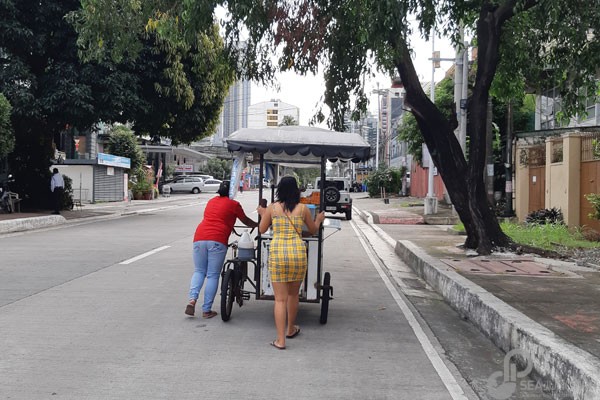
Mayla gets help from a friend (Photo by Women Writing Women)
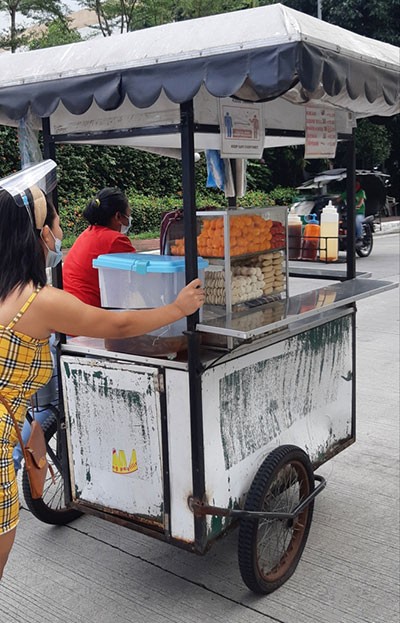
Mayla and her friend push her store cart (Photo by Women Writing Women)
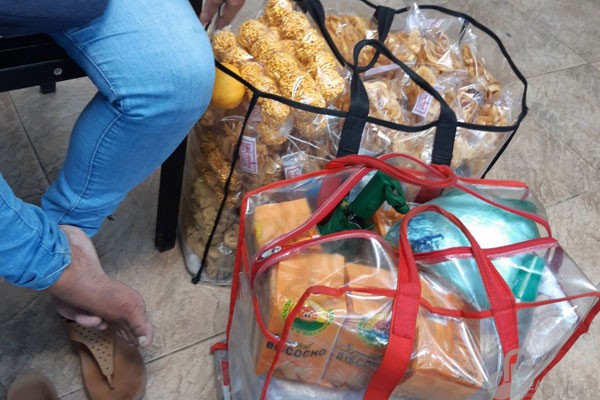
Noemi Cabayan takes a rest from selling (Photo by Women Writing Women)

Nora Magallanes and her face masks (Photo by Women Writing Women)
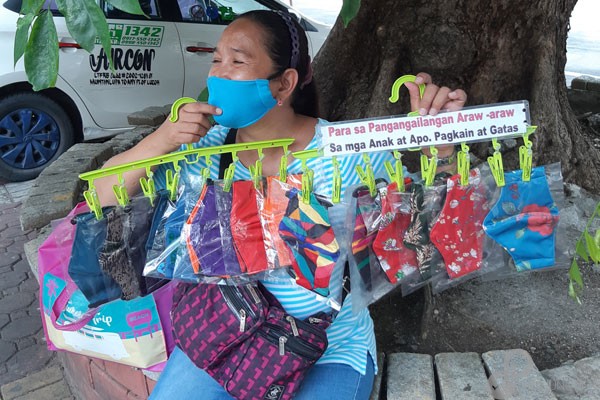
Nora Magallanes selling her fabric face masks (Photo by Women Writing Women)
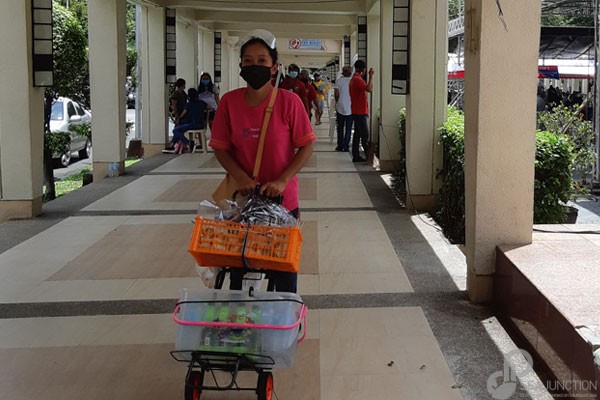
A woman selling food and drinks at a vaccination site (Photo by Women Writing Women)
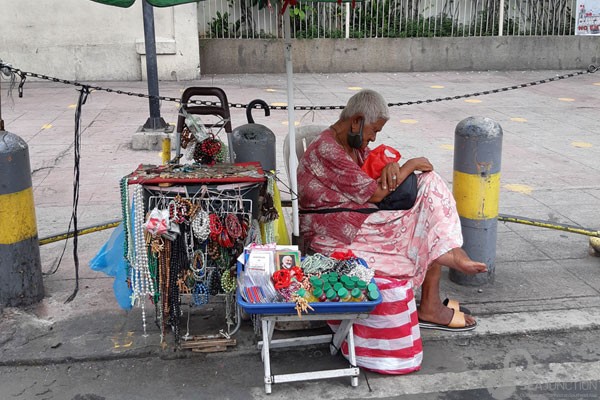
An old woman selling rosaries (Photo by Women Writing Women)
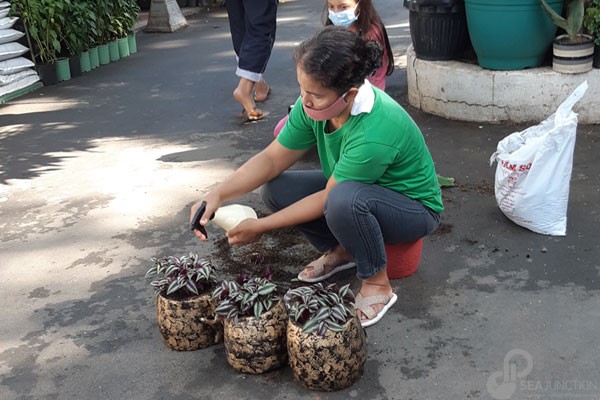
A plant vendor (Photo by Women Writing Women)
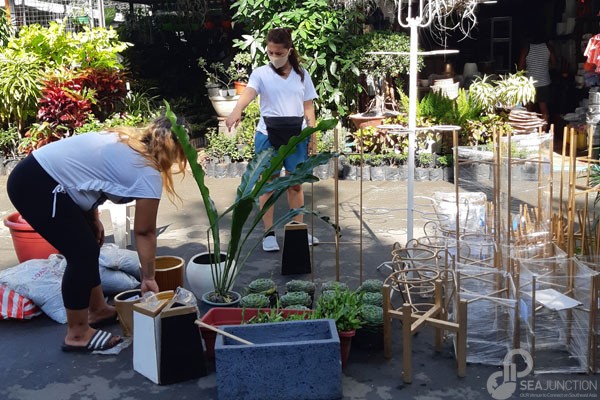
Women buy garden tools (Photo by Women Writing Women)
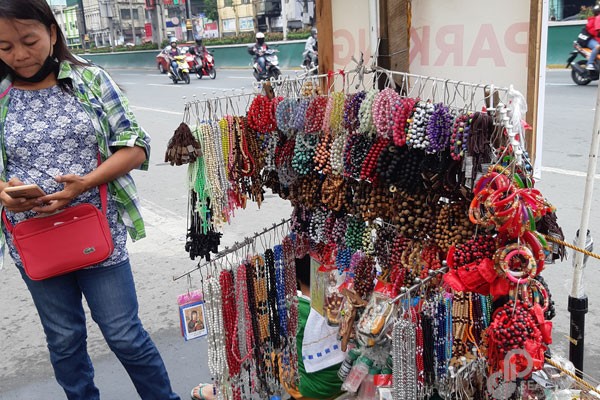
A woman selling religious ornaments (Photo by Women Writing Women)
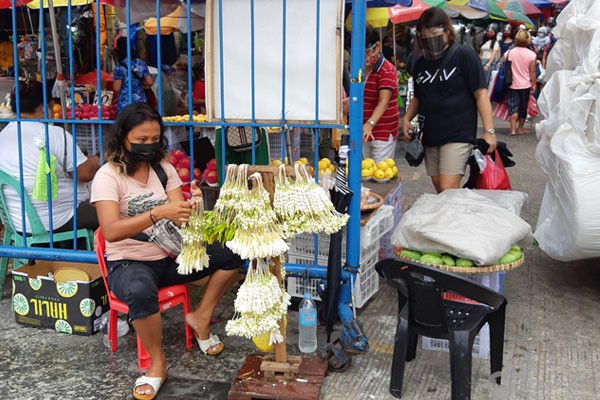
A woman selling garlands (Photo by Women Writing Women)
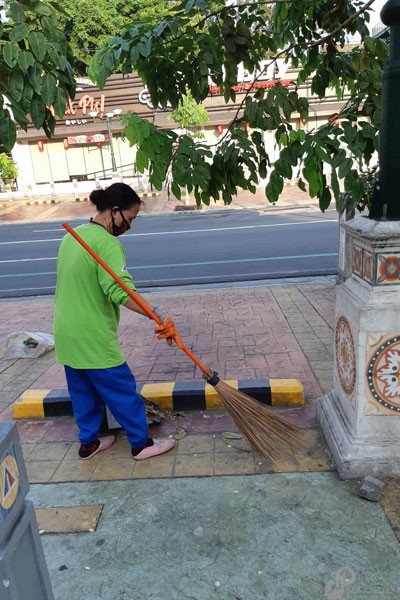
A streetsweeper continuing to work during the lockdown (Photo by Women Writing Women)
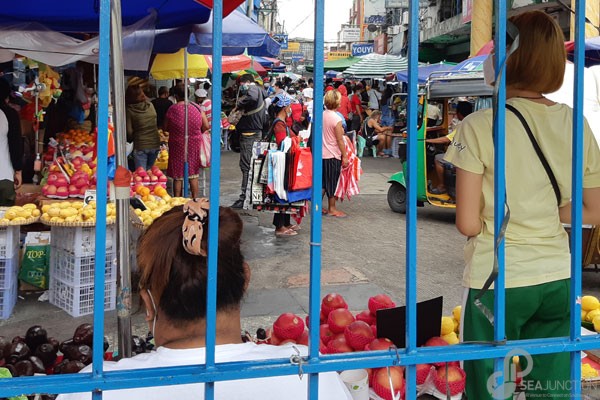
Women vendors in a wet market (Photo by Women Writing Women)
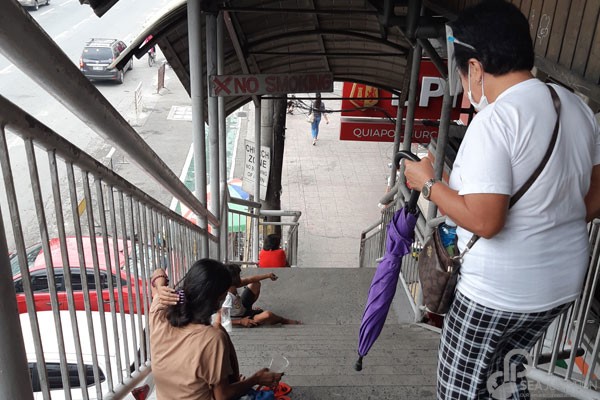
Women beggars (Photo by Women Writing Women)
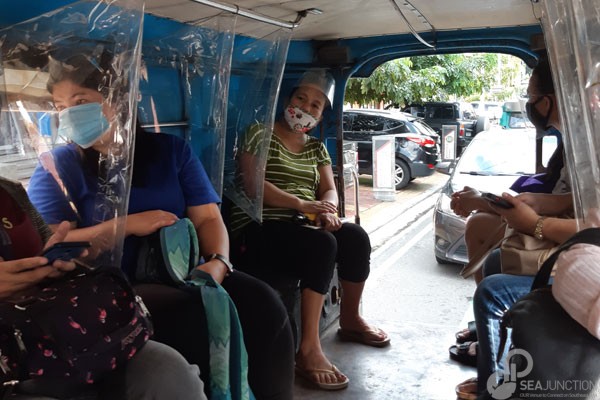
Women inside a jeepney (Photo by Women Writing Women)


